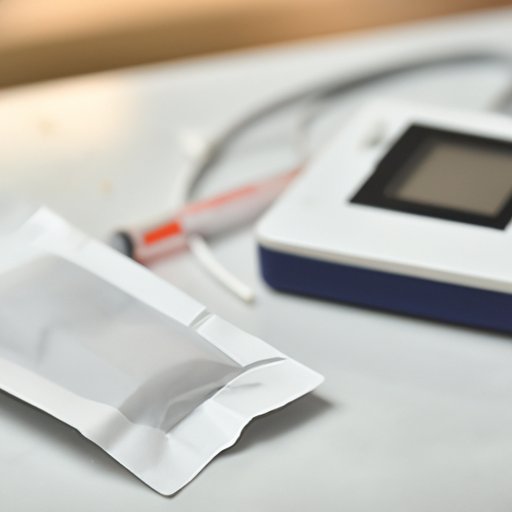Introduction
Blood work tests are critical for assessing your overall health and diagnosing illnesses. However, what you eat or drink can affect your blood test results. This is why fasting is often recommended before having blood drawn. In this guide, we will explore how long you should fast before blood work, and additional steps you can take to prepare for your blood test.
The Science Behind Fasting Before Blood Work
Doctors recommend fasting before blood work to help ensure accurate results. Fasting refers to going without food and only consuming water for a period of time before the test. This is typically needed because food and drink can affect the levels of certain substances in your blood, such as glucose or triglycerides. Fasting can help level your results.
The amount of time you should fast before your blood work can vary, depending on the specific tests that your doctor is ordering. Typically, fasting for 8-12 hours before your test is sufficient. However, your doctor may ask you to fast for up to 24 hours before your blood test, depending on the test they are conducting and your individual health needs.
Preparing for Your Blood Work Test
It is essential to prepare adequately before your blood test. The easiest way to ensure accurate results is to follow your doctor’s instructions carefully. Generally, your doctor may advise you to follow these steps:
- Avoid consuming alcohol for at least 24 hours before your blood test
- Avoid caffeine and other stimulants for at least 12 hours before your blood test
- Stay hydrated, drink plenty of water
- Eat a low-fat meal the night before, lean protein, and vegetables are the best options
- Avoid fatty foods, sugary drinks, high calorie meals, or snacks
If you are taking medication, check with your doctor about whether you should take them before or after the blood work test, and if you should be fasting if medication is still required before the test.
Tips for Managing Your Fast and Avoiding Faintness or Dizziness
Fasting can make you feel hungry, light-headed, or dizzy. Although these symptoms are typical reactions to fasting, there are some steps you can take to make your fast more comfortable:
- Stay hydrated by drinking plenty of water before the test
- Taking slow, deep breaths to help manage feelings of nausea or dizziness
- Taking breaks when you feel tired or weak, but be sure to sit down and not to lose your balance
- Bring along your favorite tunes or music to keep your mood uplifted.
- Lying down if you feel faint
Otherwise, if you feel light-headed, it is vital to inform the medical staff about it immediately.

Foods and Drinks that May Affect Blood Work Results
It is crucial to avoid some foods and drinks that might affect blood tests and render them unusable or unreadable. You should avoid consuming the following before your blood test:
- Foods that are high in fat
- Alcoholic drinks
- Sugar-rich foods
- Caffeinated drinks
These foods and drinks can affect your blood test results, and your medical staff may need to schedule another test at a later time.
Communicating Your Medication Intake to Your Doctor
It is crucial to tell your healthcare provider about any medication or supplements you are taking to ensure that your blood work is accurate. Your doctor may advise you to stop taking certain medication before the test or adjust your dose to ensure accurate results.
Practical Advice for Managing Your Fast
Fasting can be a challenge, but you can make it easier by taking small steps like planning nutritious meals ahead of time. You should also focus on drinking plenty of water and watching your caffeine and sugar intake. Listen to your body, take rest breaks when you feel tired or dizzy, or try some deep breathing exercises to maintain a calm attitude before the test. Besides, a good night’s sleep can help you prepare physically and mentally for your upcoming test.
Conclusion
If you are scheduled for blood work, it is important to follow the advice provided by your doctor. Fasting for the recommended time will help ensure that your results are accurate, allowing healthcare providers to carry out any necessary treatments. In summary, it is vital to remember to drink plenty of water, avoid food and drink known to affect blood test results, and disclose to your healthcare provider any medication you are taking, as it can significantly influence blood results.
